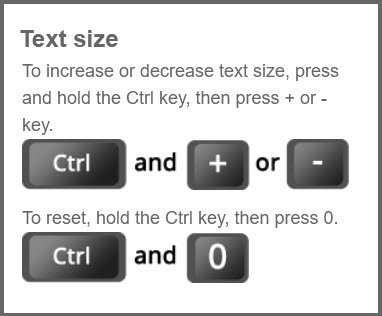Join the Champlain Region Stroke Network for an engaging continuing webinar series designed to enhance your knowledge and confidence in providing high-quality stroke care. Whether you're new to stroke management or looking to deepen your expertise, each session covers essential, evidence-based topics ranging from acute stroke treatment and prevention to post-stroke complications and palliative care. Watch on your schedule—don’t miss these opportunities to stay current with the latest in stroke best practices.
We are developing 30-minute asynchronous webinars that cover seven key areas of stroke education over a 2-year cycle, accompanied by one-page reference tools where applicable. Each topic will have specific learning objectives, which will be refreshed every two years to ensure continued relevance.
The first webinar is scheduled to launch in late September 2025, with new modules released quarterly. All content will be accessible here.
7-Part Series

1. Stroke Recognition and Rapid Neurological Exam (e.g. decision algorithms, NIHSS, screening tools, protocols)
-
Review of the rapid NIHSS examination
-
Review of other quick assessments and evaluations at bedside in possible stroke
-
Review of potential disabling deficits and how this relates to acute treatment decisions
Coming soon
2. Stroke Evaluation and Investigations (e.g. imaging, BP, cardiovascular and blood glucose management, swallowing)
-
Review of the use of CT and CTA in the assessment of acute ischemic stroke
-
Review of the use of other imaging modalities (Doppler, MRI, echo) in acute ischemic stroke and TIA
Coming soon
3. Acute Ischemic Stroke (e.g. order sets, antiplatelet therapy, in-hospital stroke, EVT, and DIDO protocols)
Objectives:
- Review of indications for dual antiplatelet therapy in TIA/minor stroke
- Management of antiplatelets following acute ischemic stroke
- When to use antiplatelets in conjunction with anticoagulants in stroke
Coming soon
4. Stroke Prevention (e.g. dual antiplatelet therapy, anticoagulation, and antithrombotic management)
Objectives:
- Indications for anticoagulation in acute ischemic stroke
- Management of anticoagulation after acute ischemic stroke – when to start, when to restart, when to hold
- Management of anticoagulation in the history of ICH
Coming soon
5. Prevention and Management of Post Stroke Complications (e.g. pain, spasticity, UTI, Dysphasia, oral care, stroke etiology/mechanism, depression and mood changes/risk factors, vascular cognitive impairment, seizures, nutrition and continence)
Objectives:
- Recognition and management of common post-stroke complications (aspiration, DVT, post-stroke seizures)
- Review of prevention of common acute issues in patients with stroke (dysphagia, depression/mood changes, spasticity, fatigue, etc.)
Coming soon
6. Palliative Care and End of Life (e.g. the approach, pain and symptom management, psychosocial support, including caregiver support, MAID, organ and tissue donation)
Objectives:
- Best practices for discussion of goals-of-care/advanced care directives in stroke and ICH
- Management of common issues in palliative care after stroke (fluids/feeding, management of symptoms, prognostication)
Coming soon
7. Key Messages from the Canadian Stroke Best Practice Recommendations (e.g. understanding TIA, Hemorrhagic, Ischemic and CVT Canadian Stroke Best Practice Recommendations)
Objectives:
- Review of the Canadian Stroke Best Practice release and discussion of new best practice recommendations
Coming soon *Determined based on release date

